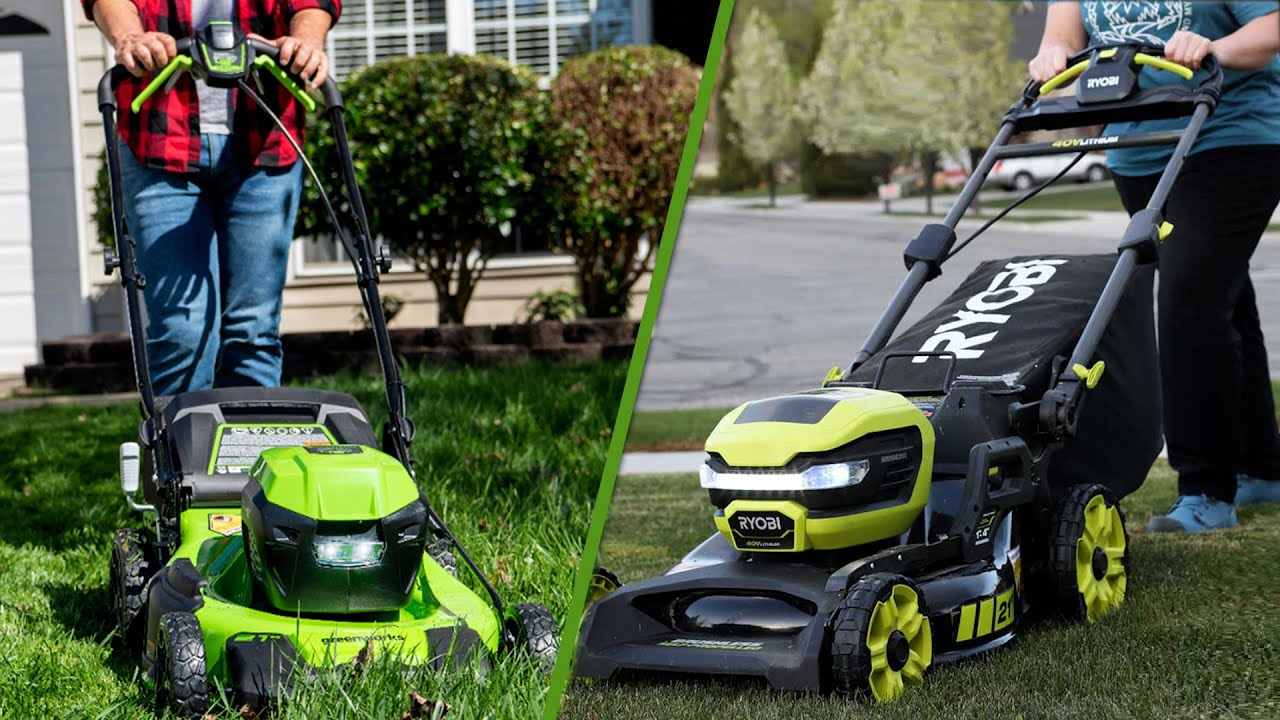

Articles
Which Is Better – Ryobi Or Greenworks?
Modified: May 6, 2024
Looking for articles comparing Ryobi and Greenworks? Find out which brand is better for your needs in this informative guide.
(Many of the links in this article redirect to a specific reviewed product. Your purchase of these products through affiliate links helps to generate commission for Storables.com, at no extra cost. Learn more)
Introduction
When it comes to outdoor power tools, two popular names stand out: Ryobi and Greenworks. Both brands offer a wide range of products designed to make yard work easier and more efficient. Whether you’re in the market for a lawn mower, trimmer, or chainsaw, choosing the right brand is crucial. But which is better – Ryobi or Greenworks?
In this article, we will compare Ryobi and Greenworks based on several key factors, including power source, product range, battery performance, cutting capability, build quality, ease of use, warranty and customer support, and price. By examining these aspects, we hope to help you make an informed decision and find the brand that best suits your needs.
So, let’s dive in and explore the similarities and differences between Ryobi and Greenworks!
Key Takeaways:
- Ryobi offers a diverse range of power options, including corded electric, battery-powered, and gas-powered tools, making it suitable for various yard sizes and user preferences.
- Greenworks focuses primarily on battery-powered tools, offering added value with included batteries and chargers, making it a convenient and environmentally friendly choice for yard maintenance tasks.
Read more: Which Is Better Dewalt Or Ryobi
Power Source
The first factor to consider when comparing Ryobi and Greenworks is the power source of their outdoor tools. Ryobi offers a range of power options, including corded electric, battery-powered, and gas-powered tools. On the other hand, Greenworks focuses primarily on battery-powered tools, although they do offer some corded options as well.
Both brands have their advantages and disadvantages when it comes to power source. Corded electric tools provide consistent power without the need for batteries or gasoline, making them ideal for smaller yards. However, the downside is that you’re limited by the length of the cord and might need an extension cord for larger areas.
Battery-powered tools, on the other hand, offer more mobility and convenience. They are generally quieter and produce zero emissions, making them environmentally friendly. Ryobi and Greenworks both have a wide range of battery-powered tools that use lithium-ion batteries, which offer longer runtimes and faster charging compared to older battery technologies.
Gas-powered tools, offered by Ryobi, provide the most power and are suitable for larger yards or professional use. However, they require regular maintenance and fueling, which may be inconvenient for some users.
Ultimately, the choice between Ryobi and Greenworks will depend on your specific needs and preferences. If you have a small to medium-sized yard and prioritize convenience, battery-powered tools from Greenworks might be the best option. However, if you have a larger yard and require more power, Ryobi’s range of corded electric and gas-powered tools may be more suitable.
Product Range
When it comes to product range, both Ryobi and Greenworks offer a wide selection of outdoor power tools. Ryobi has a comprehensive lineup that includes lawn mowers, trimmers, blowers, chainsaws, pressure washers, and more. They also offer specialized tools such as hedge trimmers, edgers, and cultivators.
Greenworks, on the other hand, focuses primarily on battery-powered tools. Their product range includes lawn mowers, trimmers, leaf blowers, chainsaws, and hedge trimmers. They also have a selection of pressure washers and snow blowers. While Greenworks may not have as extensive of a product lineup as Ryobi, they still offer a variety of tools to meet most yard maintenance needs.
Both brands are known for their innovation and continuously release new models with improved features and technology. Ryobi, in particular, has a reputation for offering a vast array of compatible tools and accessories that work with their battery system, providing users with versatility and flexibility.
Ultimately, the choice between Ryobi and Greenworks in terms of product range will depend on the specific tools you require for your outdoor tasks. If you’re looking for a wide selection of tools and compatibility, Ryobi might be the better choice. However, if you primarily need battery-powered tools and don’t require as many specialized options, Greenworks may fulfill your needs.
Battery Performance
When it comes to battery-powered tools, one of the most important factors to consider is battery performance. Both Ryobi and Greenworks offer lithium-ion batteries that provide reliable and consistent power. However, there are some differences to consider.
Ryobi uses a range of battery sizes, including 40V, 18V, and 12V, allowing users to choose the right level of power for their specific needs. Their batteries have a reputation for long runtimes, allowing users to complete their tasks without interruptions. Ryobi also offers rapid chargers, which significantly reduce charging time compared to conventional chargers.
Greenworks, on the other hand, primarily utilizes their 40V G-MAX battery system. These batteries offer excellent runtime, allowing users to tackle larger projects without the need for frequent recharges. Greenworks also provides a range of battery capacities, giving users the flexibility to choose the right power level for their tasks.
In terms of compatibility, both brands design their batteries to be interchangeable among their respective tools. This means that if you already own a Ryobi or Greenworks battery, you can use it with multiple tools, reducing the need to purchase additional batteries.
It’s worth noting that battery performance can vary depending on the specific tool and the task at hand. Heavier-duty tools like lawn mowers or chainsaws may deplete the battery more quickly than lighter tools such as trimmers or blowers. Therefore, it’s essential to consider your specific needs when evaluating battery performance.
Ultimately, both Ryobi and Greenworks offer reliable battery performance, and the choice between the two will depend on the specific tools you need and the runtime required for your yard maintenance tasks.
Cutting Capability
When it comes to outdoor power tools, cutting capability is a crucial factor to consider. Whether you’re mowing the lawn, trimming hedges, or cutting through branches, having the right tools for the job is essential.
Ryobi and Greenworks both offer a range of tools with different cutting capabilities to meet various yard maintenance needs.
For lawn mowers, both brands have options that cater to different lawn sizes and cutting heights. Ryobi offers a variety of corded electric and battery-powered mowers, some of which feature advanced features like self-propulsion and mulching capabilities. Greenworks also offers battery-powered mowers with adjustable cutting heights and efficient cutting decks.
In terms of trimmers, Ryobi and Greenworks provide options for both string trimmers and hedge trimmers. Ryobi’s trimmers are known for their versatility, with adjustable cutting heads and capabilities for both trimming and edging tasks. Greenworks, on the other hand, offers lightweight and maneuverable trimmers for precise trimming and shaping.
For cutting through branches and limbs, both brands offer chainsaws with different power options. Ryobi has a range of corded electric and gas-powered chainsaws, providing more power for heavy-duty tasks. Greenworks focuses on battery-powered chainsaws that offer convenience and portability without compromising on cutting performance.
It’s worth noting that the cutting capability can vary depending on the specific tool model and the task at hand. It’s important to consider the power and cutting features offered by each brand and select the tool that aligns with your specific yard maintenance requirements.
Ultimately, both Ryobi and Greenworks provide tools with reliable cutting capability. The choice between the two will depend on the specific tools you need and the cutting tasks you frequently encounter in your yard.
When comparing Ryobi and Greenworks, consider factors such as battery compatibility, power output, and warranty coverage to determine which brand is better suited for your specific needs.
Read more: Which Vacuum Cleaner Is Better
Build Quality
When investing in outdoor power tools, it’s important to consider the build quality to ensure durability and longevity. Both Ryobi and Greenworks have a reputation for producing tools of good quality, but there are some factors to consider.
Ryobi is known for manufacturing tools that are robust and can withstand heavy use. They often incorporate durable materials in their construction, ensuring that their tools can withstand the rigors of outdoor work. Additionally, Ryobi’s tools often feature ergonomic designs, making them comfortable to handle for extended periods.
Greenworks, on the other hand, also focuses on producing tools of solid build quality. Their tools are designed to be lightweight yet sturdy, allowing for ease of use and maneuverability. Greenworks’ attention to detail in construction ensures that their tools are reliable and able to withstand demanding tasks.
It’s important to note that build quality can vary among different models and product lines. It’s always a good idea to read reviews and check user feedback for specific tools you are interested in to get a better idea of their build quality and performance.
Both Ryobi and Greenworks offer warranties on their tools, providing peace of mind to customers. Ryobi typically offers a three-year limited warranty on their tools, while Greenworks offers a four-year limited warranty for residential use. These warranties are a testament to the confidence that both brands have in the build quality of their products.
Ultimately, both Ryobi and Greenworks are committed to delivering tools with solid build quality. Consider your specific needs, the type of tasks you will be performing, and any additional features you require when evaluating the overall build quality of each brand.
Ease of Use
When it comes to outdoor power tools, ease of use is a crucial factor to consider. After all, you want tools that are user-friendly and make your yard work tasks more convenient and efficient.
Ryobi and Greenworks both prioritize ease of use in their designs, incorporating features that enhance the user experience.
Ryobi’s tools often come with intuitive controls and ergonomic handle designs, allowing for comfortable operation over extended periods. They also offer features like adjustable handles and height settings, allowing users to customize the tools to their comfort and preference.
Greenworks also focuses on user-friendly designs, particularly with their battery-powered tools. The absence of cords or gasoline makes their tools easier to handle and operate. They also prioritize lightweight designs, reducing user fatigue and ensuring maneuverability.
In terms of maintenance, both brands strive to make their tools as hassle-free as possible. Ryobi’s tools often feature tool-less adjustments and quick-release mechanisms for easy blade or string replacement. Similarly, Greenworks designs their tools with user-friendly features such as automatic oiling systems on chainsaws.
It’s important to note that specific models and tool types may have different features and ease of use considerations. Reading user reviews and product specifications can provide valuable insights into the overall user experience for each brand and tool.
Overall, both Ryobi and Greenworks are dedicated to providing tools that are user-friendly and intuitive. The choice between the two will depend on your specific needs and preferences, as well as the ease of use features that are most important to you.
Warranty and Customer Support
Warranty and customer support are important considerations when purchasing outdoor power tools. Both Ryobi and Greenworks offer warranties on their products to provide coverage and peace of mind to their customers.
Ryobi typically offers a three-year limited warranty on their tools, which covers defects in materials or workmanship. This warranty ensures that if you encounter any issues with your Ryobi tool within the specified timeframe, you can have it repaired or replaced at no additional cost. Ryobi also provides a customer support team that can assist with any questions or concerns you may have regarding their products.
Greenworks, on the other hand, stands behind their tools with a four-year limited warranty for residential use. This warranty ensures that your Greenworks tool is protected against defects and malfunctions. Like Ryobi, Greenworks also has a customer support team available to address any inquiries or issues you may encounter.
When it comes to customer support, both Ryobi and Greenworks are dedicated to providing excellent service. They have online resources such as user manuals, FAQs, and troubleshooting guides to assist customers with common issues. Additionally, both brands have support hotlines and email channels where you can reach out for assistance.
In the case of warranty claims or repairs, it’s always recommended to follow the guidelines outlined by each brand. This may involve contacting their customer support team, providing proof of purchase, and following any specific protocols for warranty claims.
It’s important to review and understand the warranty terms and conditions for each brand and product you purchase. This will ensure that you have a clear understanding of what is covered and what is not, as well as any limitations or exclusions that may apply.
Ultimately, both Ryobi and Greenworks offer warranties and customer support to address any potential issues that may arise with their tools. The choice between the two will depend on your specific needs and preferences, as well as the warranty terms and level of customer support that aligns with your expectations.
Price Comparison
When considering outdoor power tools, price is often an important factor for many customers. It’s important to compare the prices of Ryobi and Greenworks tools to ensure you’re getting the best value for your money.
In terms of price, Ryobi and Greenworks offer tools in various price ranges to accommodate different budgets.
Ryobi has a reputation for offering affordable tools without sacrificing quality. They have a wide range of options at different price points, allowing customers to find tools that meet their needs within their budget. Ryobi’s corded electric tools are generally more budget-friendly compared to their battery-powered or gas-powered counterparts.
Greenworks focuses primarily on battery-powered tools, which can be a more expensive initial investment compared to corded electric options. However, Greenworks’ battery-powered tools often come with a battery and charger included in the price, eliminating the need for separate purchases. This can provide an added value for customers.
When comparing prices, it’s important to consider the specific type of tool you need and its features. More advanced or specialized tools may come at a higher price point compared to basic models.
Additionally, it’s worth noting that ongoing costs, such as replacement batteries or maintenance, should be taken into consideration when evaluating the overall value of the tools.
Ultimately, the price comparison between Ryobi and Greenworks will depend on the specific tools you are interested in and the features you require. It’s recommended to compare prices from various retailers and consider any ongoing costs associated with the tools to make an informed decision.
Remember, the goal is to find a balance between price and quality to ensure you’re getting a reliable and efficient tool that fits within your budget.
Read more: Which Is Better: Projector Or TV
Conclusion
When considering which brand is better – Ryobi or Greenworks – there are several factors to take into account. Both brands offer a wide range of outdoor power tools with their own strengths and advantages.
In terms of power source, Ryobi provides a more diverse selection with corded electric, battery-powered, and gas-powered options, while Greenworks primarily focuses on battery-powered tools.
When it comes to product range, Ryobi has a more comprehensive lineup with a wide variety of tools and accessories, while Greenworks offers a narrower but still substantial range of tools.
Battery performance is an important consideration for battery-powered tools. Both brands offer reliable lithium-ion batteries, but Ryobi provides a wider range of battery sizes and options, while Greenworks focuses mainly on their 40V G-MAX battery system.
When evaluating cutting capability, both Ryobi and Greenworks offer tools suitable for various yard maintenance tasks. Ryobi’s line includes a wider array of specialized tools, while Greenworks focuses on lightweight and efficient options.
Build quality is an important aspect to consider for durability. Ryobi is known for producing robust tools, often incorporating durable materials, while Greenworks emphasizes lightweight yet sturdy designs.
Ease of use is another crucial factor. Both brands strive to offer user-friendly tools with ergonomic designs and intuitive controls. Ryobi has a reputation for versatility with adjustable features, while Greenworks emphasizes the absence of cords or gasoline for increased convenience.
Warranty and customer support are critical for peace of mind. Ryobi typically offers a three-year limited warranty, while Greenworks offers a four-year limited warranty for residential use. Both brands have customer support teams to assist customers with their inquiries or issues.
Lastly, price is a significant factor for many customers. Ryobi offers budget-friendly options without compromising quality, while Greenworks focuses primarily on battery-powered tools with added value in battery and charger inclusion.
In conclusion, determining the better brand between Ryobi and Greenworks ultimately depends on your specific needs, preferences, and budget. Both brands have their own unique strengths and advantages. Consider the factors discussed in this article, evaluate the specific tools you require, and make an informed decision based on your individual circumstances. Regardless of your choice, both Ryobi and Greenworks provide reliable and efficient outdoor power tools to help make your yard work easier and more enjoyable.
Curious about more than just lawn care brands? Dive into our next feature where we dissect various brands to determine which offer superior power tools. Whether you're tackling a DIY project or sprucing up your garden, understanding which tools deliver the best performance and value is key. So, if you're gearing up for your next home improvement venture, don't miss out on finding out what sets certain power tool brands apart from the rest.
Frequently Asked Questions about Which Is Better - Ryobi Or Greenworks?
Was this page helpful?
At Storables.com, we guarantee accurate and reliable information. Our content, validated by Expert Board Contributors, is crafted following stringent Editorial Policies. We're committed to providing you with well-researched, expert-backed insights for all your informational needs.
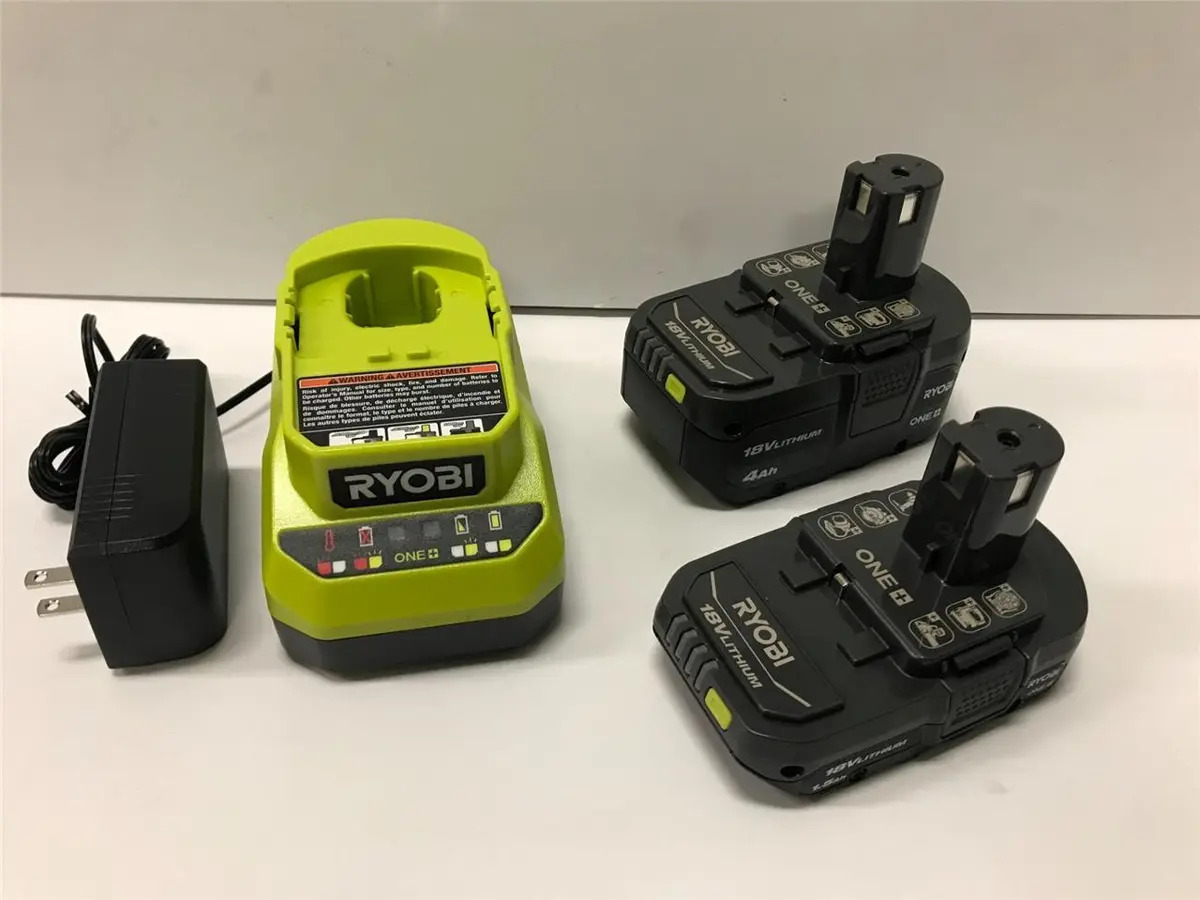
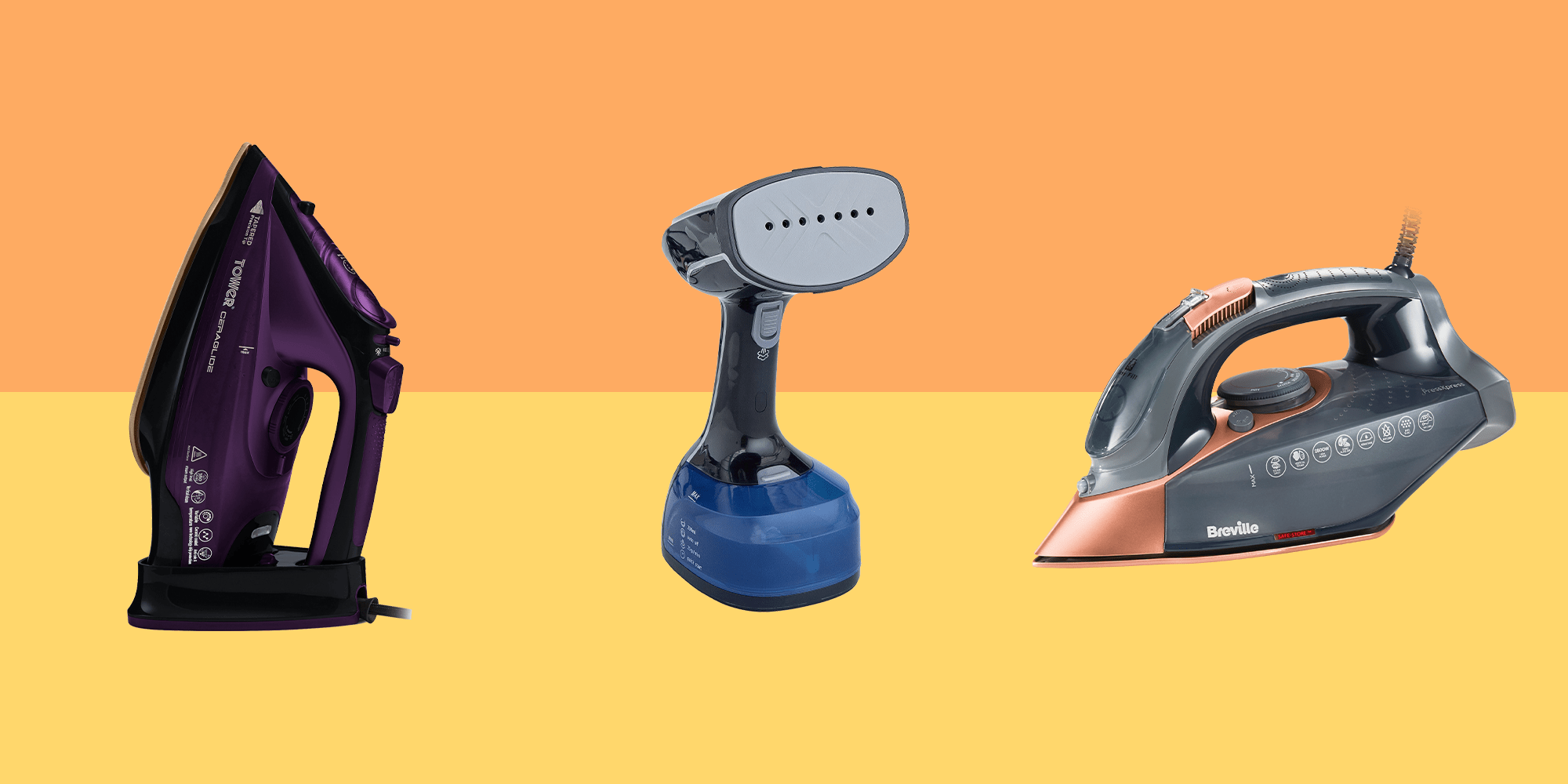

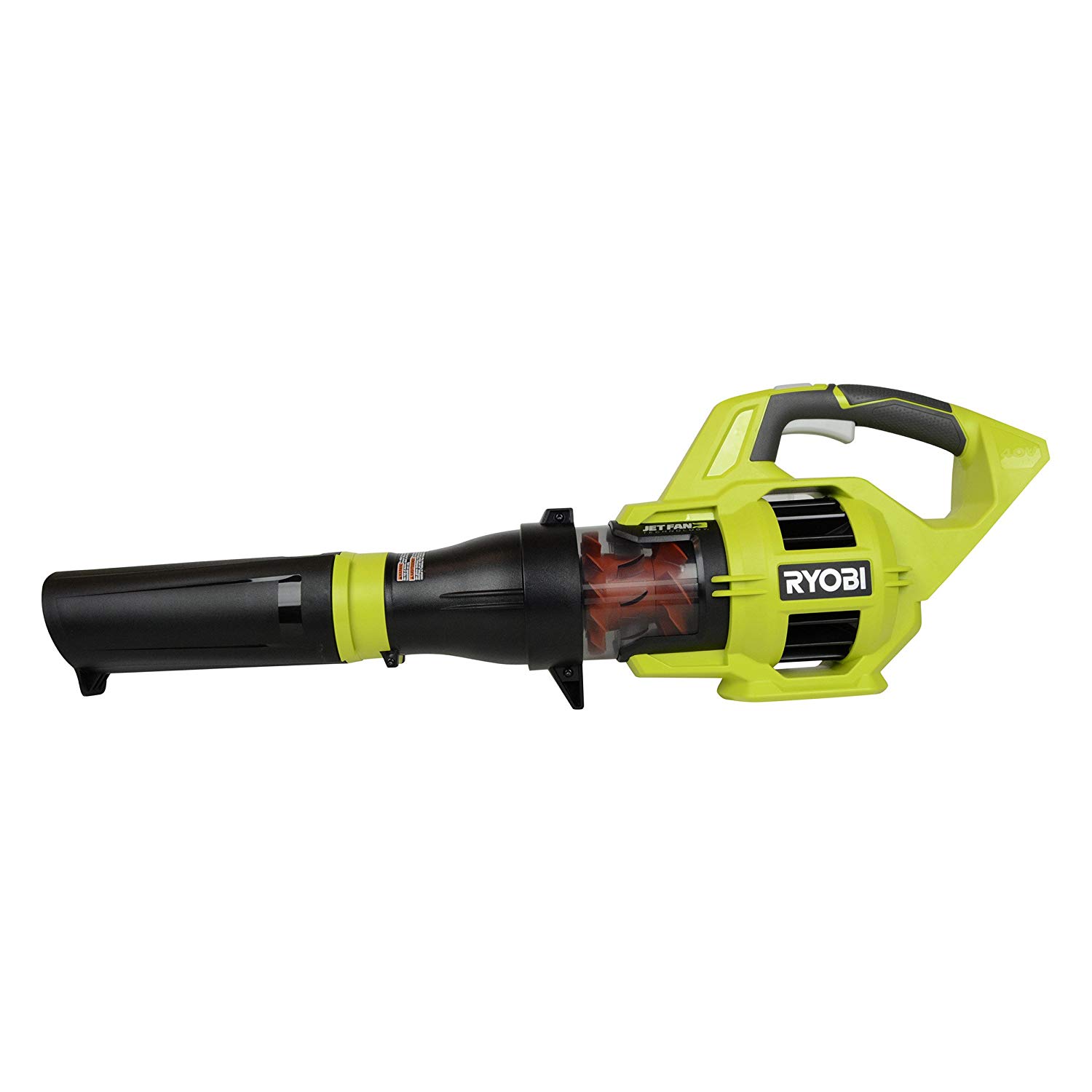
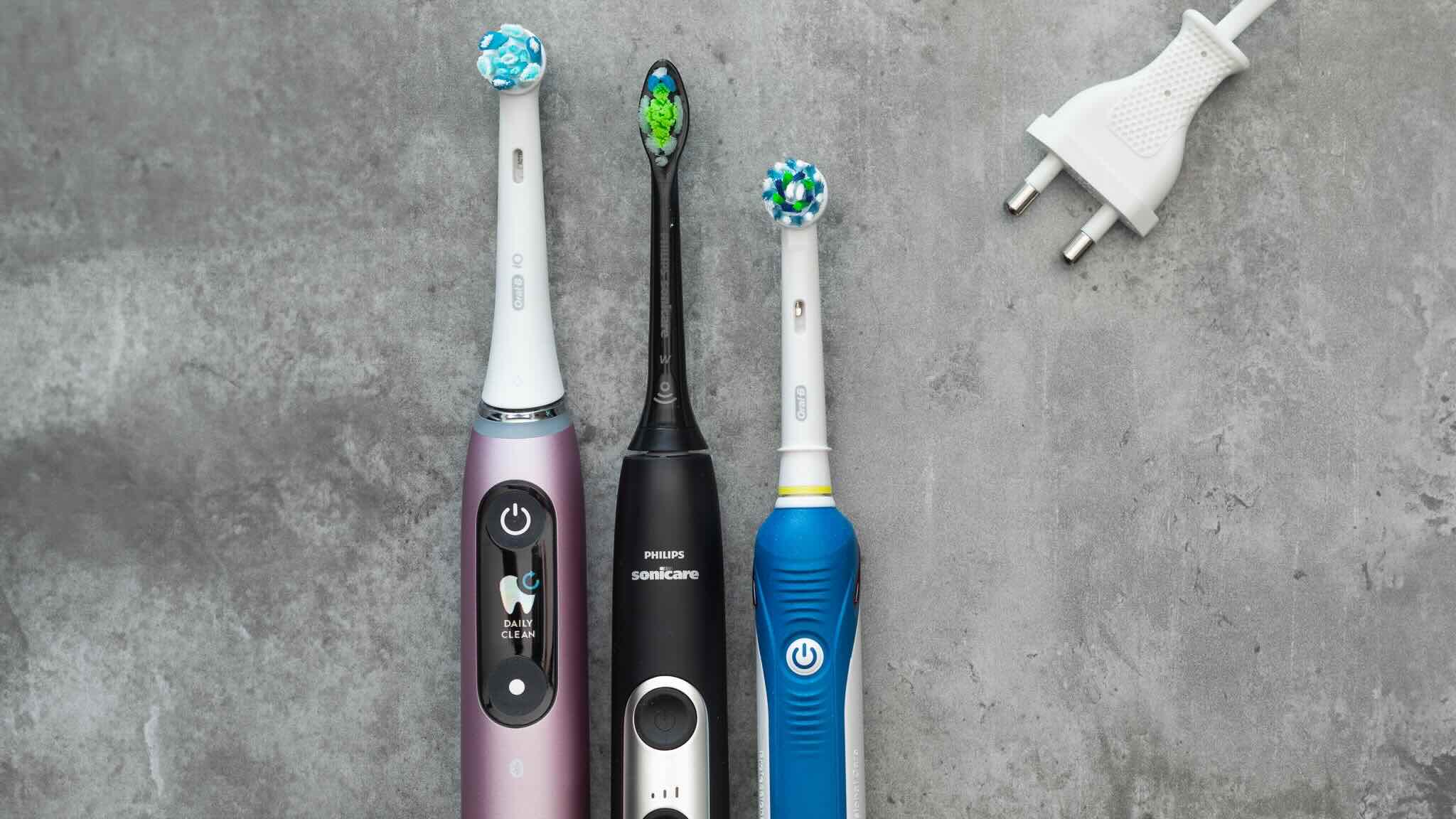




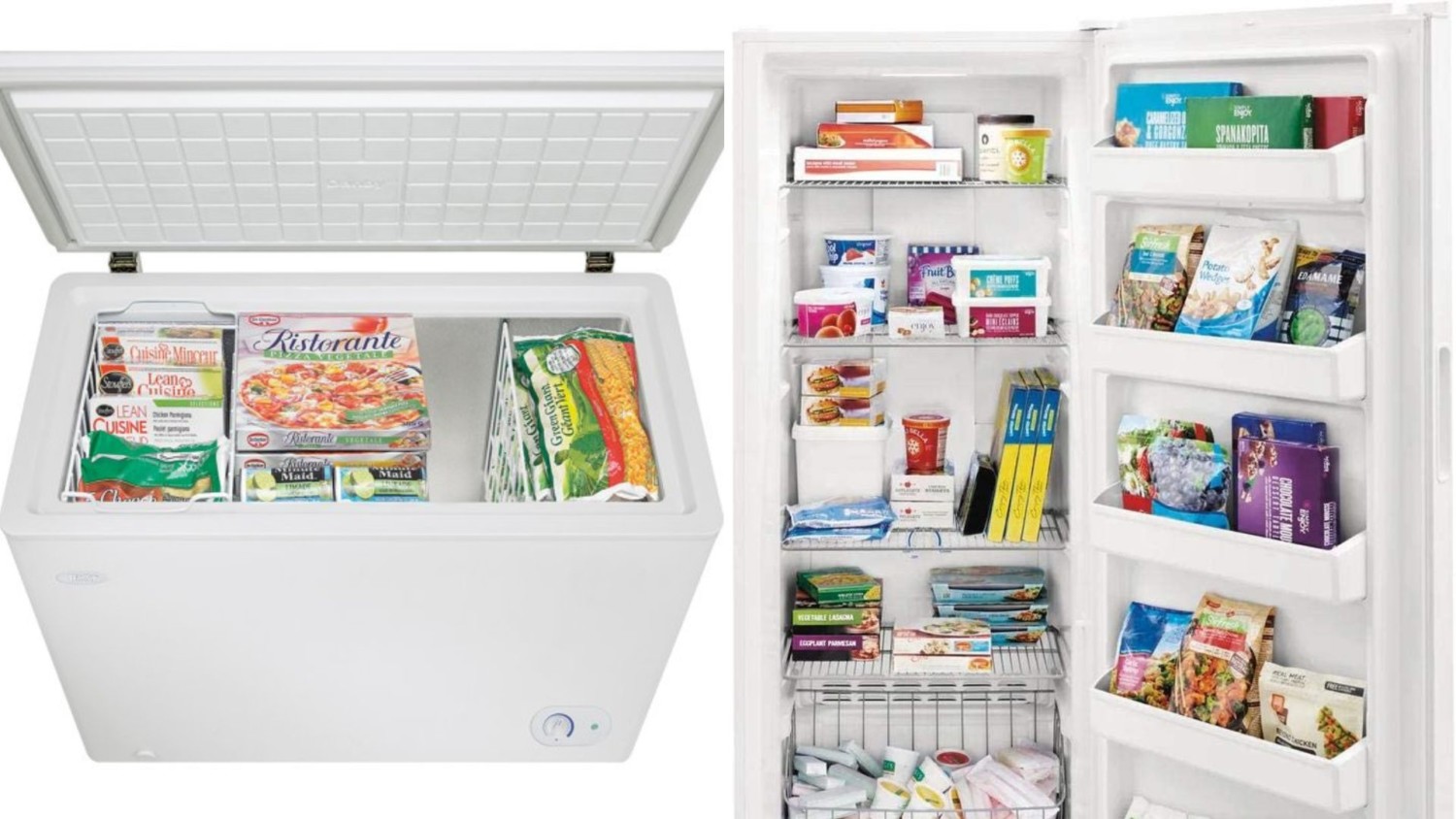


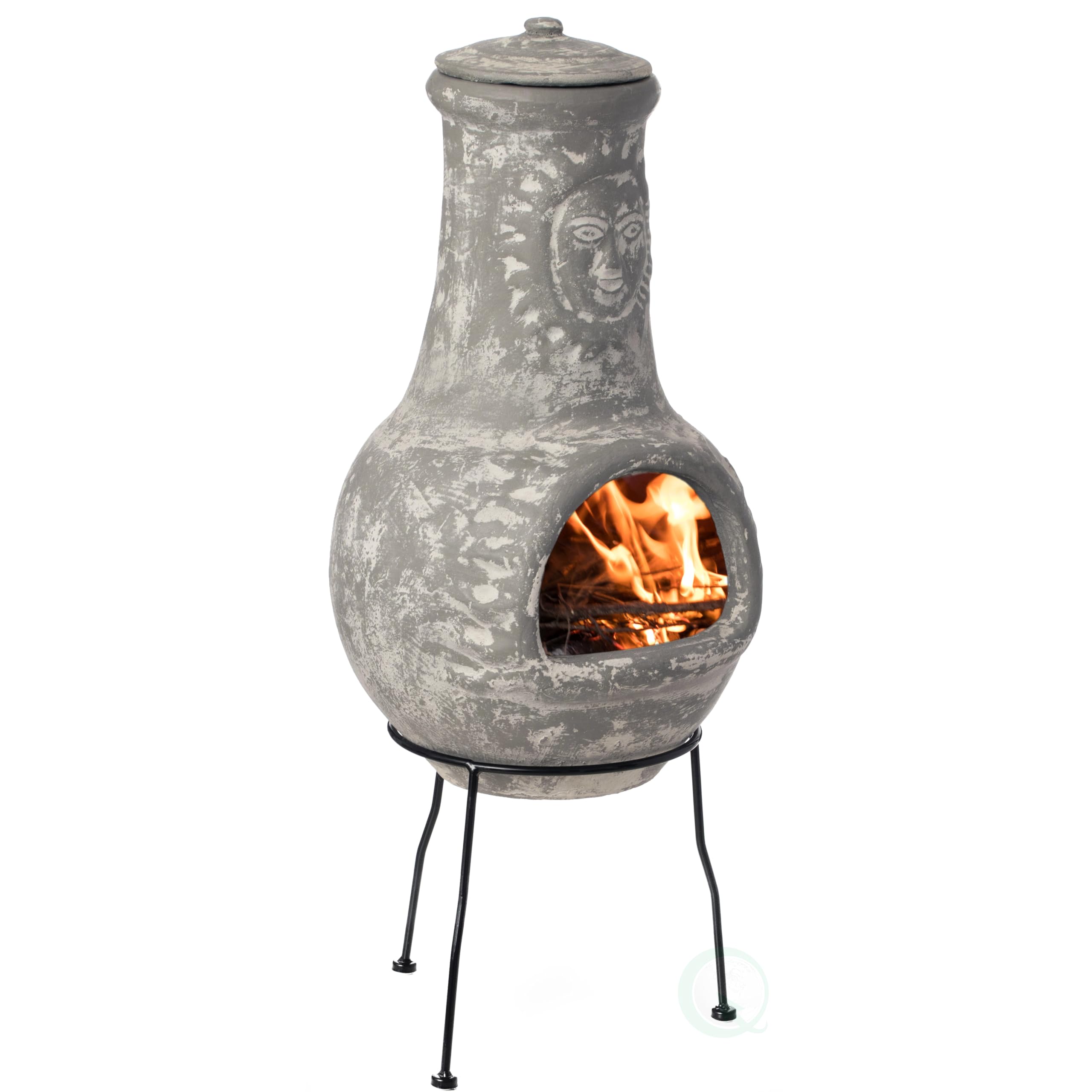

0 thoughts on “Which Is Better – Ryobi Or Greenworks?”